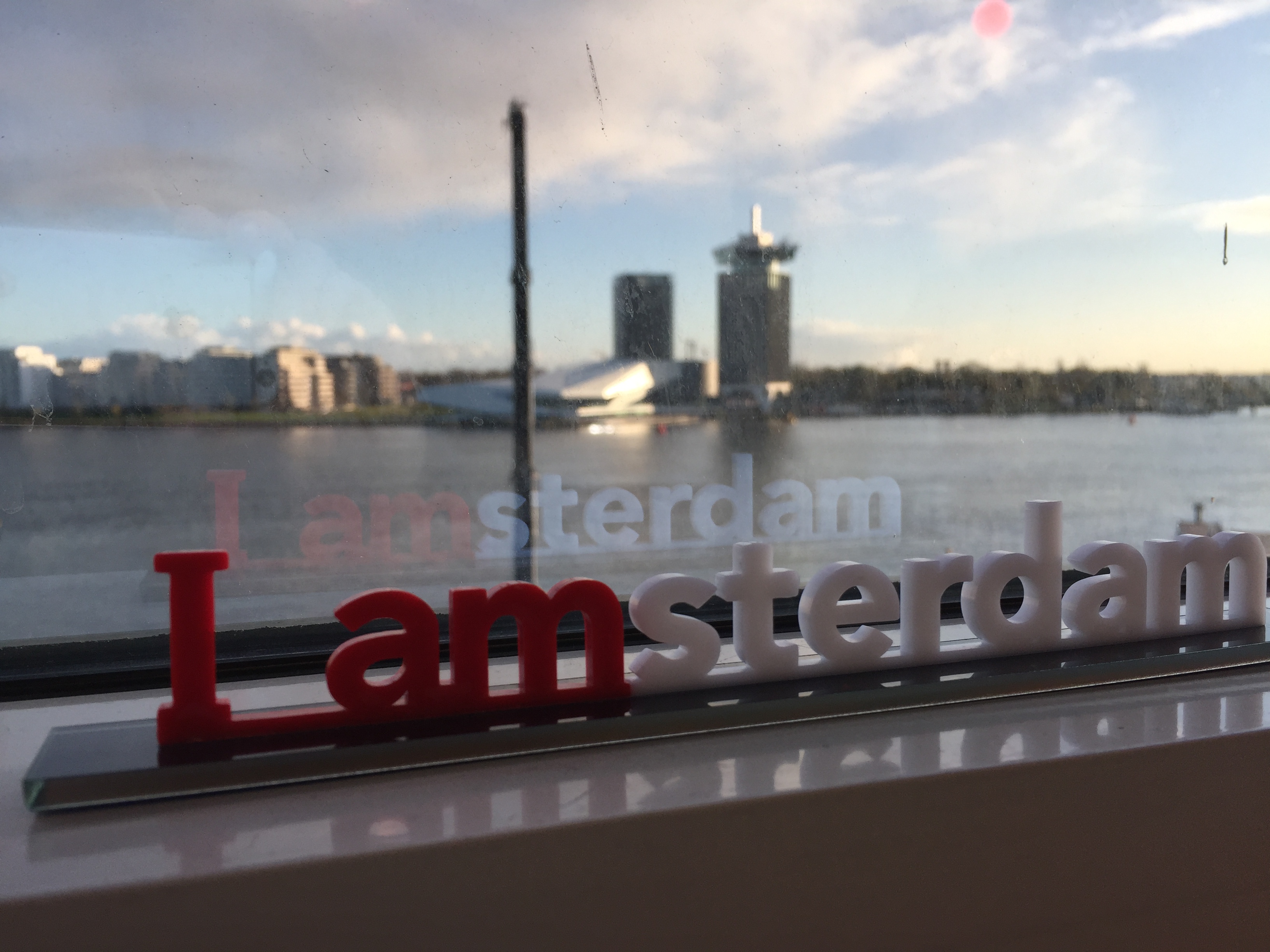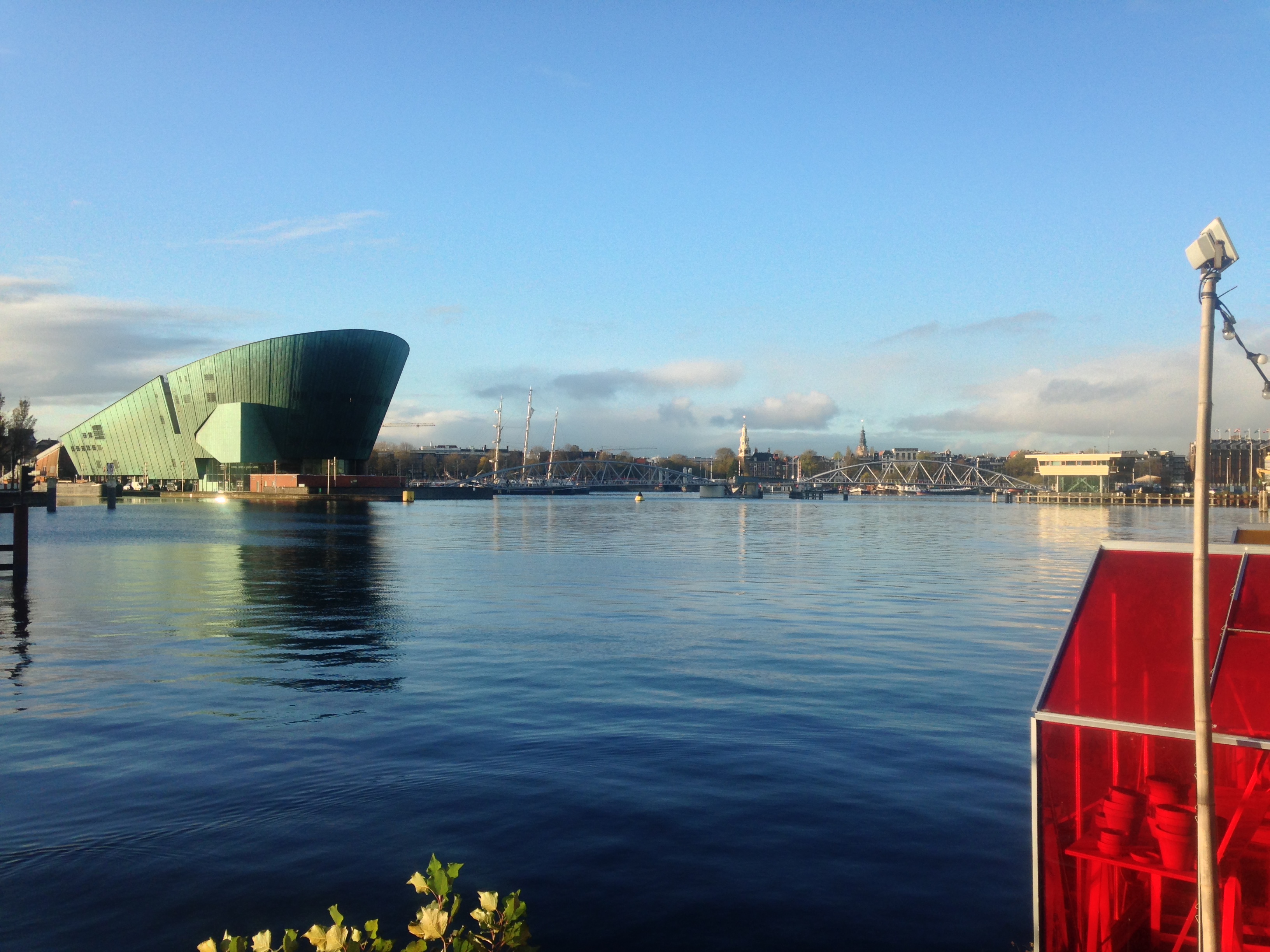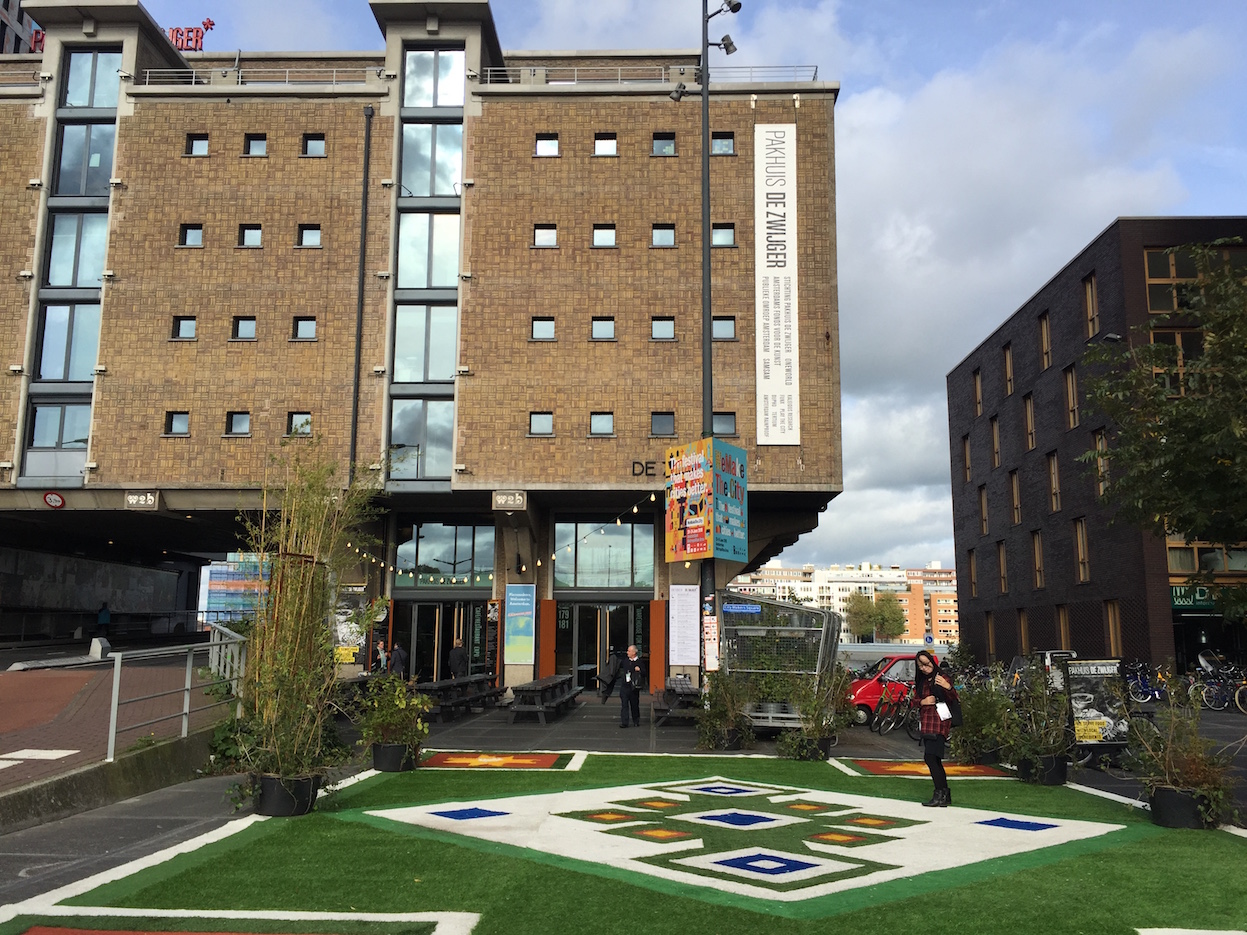Digital cities: Amsterdam’s ecosystem of cooperation
Edited on
24 June 2019Simone D’Antonio, Daniela Patti, Levente Polyak
The controversial position of large ICT companies in terms of taxation, data management, political leverage and the spreading of fake news has been highlighted by recent newspaper articles. With Google and Facebook becoming one of the major global players in terms of turnover thanks to our digital actions, their relationship with the public interest is no longer a secondary aspect. Google has been sued by the EU Commision for tax evasion. Facebook has been accused of fostering fake news in the American elections and the Brexit Referendum. Yet little public debate is taking place about public-private-civic cooperation in the realm of ICT function. Where are the boundaries of private companies and where should the public step in to counter balance interests?

The role of the EU in the digital market started gaining more importance during the Estonian European Presidency in the second semester of 2017 to some extent. Google, Facebook and Apple were forced to start paying taxes for transactions carried out in EU countries. This strengthened the position of the Digital Single Market, an EU strategy to ensure access to online activities for individuals and businesses under conditions of fair competition, consumer and data protection, removing geo-blocking and copyright issues. Furthermore, the EU Urban Agenda is looking into ways to improve funding, policy and knowledge within the process of Digital Transition, for which the responsible partnership of Member States, cities and relevant NGOs should soon publish an Action Plan.
These international debates are locally translated in cities, which are confronted with many of the daily externalities of digital platforms and applications. The City of Genoa challenged Airbnb to pay local tourist taxes as hotels do, bringing the case to national court. The action forced Airbnb to enforce the taxation payment to individual room renters. The City of Ghent together with Ghent University are working on developing their own internet platform ensuring data ownership in the public domain. The City of Alba Iulia, as part of the national Smart City Strategy, is creating a local platform to establish a regular collaboration with key ICT players. Clearly the relationship with these companies is very relevant for cities but the way in which each one approaches them is kaleidoscopic.
The City of Amsterdam has taken on a front runner role, establishing a relationship with the large ICT companies that moves from conflict to cooperation, following the “Polder Model”. In fact, Amsterdam signed an agreement with Airbnb in order to monitor the number of nights rented out on the platform by each apartment, enforcing severe fines on owners transpassing the established limit. The city has also created a Smart City Amsterdam multi-stakeholder platform bringing together all relevant stakeholders from public, corporate, civic and research sectors, a cooperation that contributed to the nourishing of an impressive innovation ecosystem. In November 2017, as part of an Interactive Cities partners’ site visit, we organised a series of meeting with City Departments and local stakeholders in order to better understand the Amsterdam digital strategy.
Platforms for urban cooperation
In 2016, Amsterdam received the European Commission’s Innovation Capital Award: a recognition resulting from years of work in building an innovation ecosystem the city. This work also corresponds to the transformation of city policies, moving from top-down masterplanning towards a focus on creating an economically strong and sustainable, as well as a creative and just city. Digital innovation is at the core of these policies, generating new partnerships and tools to help the city’s transition to a knowledge-based economy. One key element of the city’s digital transition is its digital infrastructure: the Amsterdam Internet Exchange is one of the main hubs in Europe, and an important reason for many companies choosing Amsterdam as their European headquarters. But even more important in this transition is a densely interconnected network of civic initiatives, enterprises and institutions.
A central actor of this ecosystem is Amsterdam Smart City (ASC), a public-private partnership organised within the Amsterdam Economic Board that includes 11 partners, including public authorities, knowledge institutions, civic spaces and private companies: the Amsterdam Municipality, the Amstelveen Municipality, the Hogeschool van Amsterdam, Pakhuis de Zwijger, the Waag Society, Amsterdam Arena, post.nl, KPN, Liander, Engie and Arcadis. Amsterdam Smart City was born from the recognition that despite of the presence of many start-ups and smart citizens with ideas in Amsterdam, demand and supply do not easily find each other. ASC aims at filling this gap: initiated by the public sector and funded by the private sector, it is representative of a specifically Dutch governance structure, working with a variety of stakeholders on key urban transition elements, helping Amsterdam position itself as a competitive and future-proof European region with an improved liveability. 
ASC acts as an innovation platform both in a digital and a physical sense, offering space to share initiatives in the domains of infrastructure and technology, the circular city, energy, water and waste, governance and education, citizens and living, and mobility, with digital connectivity and data as transversal themes. In recent years, it has shifted from a curated website towards an open platform where anyone can upload projects or products and can initiate actions and different forms of cooperation, helping initiatives gain visibility within Amsterdam and beyond.
Amsterdam’s innovation ecosystem stands on many pillars and ASC’s members themselves act as platforms of knowledge and exchange. Waag Society, for instance, is a laboratory for technological innovation and open government initiatives, aiming at bringing ICT knowledge and skills to public administrations, opening public data to communities and developing platforms that enable citizens to provide feedback to administrations or to connect with each other in fair economic exchange. Representative of this latter ambition is Fairbnb, a spin-off of a Waag Society project that aims at creating a platform for responsible tourism that benefits local communities instead of extractive mechanisms. Another member of the partnership, Pakhuis de Zwijger is a physical venue with over 600 events a year that has in the past years become one of the main centres to discuss the future of cities in Europe and beyond.
To frame the discussion within the Amsterdam Smart City ecosystem, academic partners like the University of Applied Sciences and AMS Institute lay out the theoretical frameworks, bring in existing knowledge and evaluate projects. But the ASC partnership is only the core of a broad network of initiatives, organisations and platforms for public-private-civic cooperation in Amsterdam, including engagement projects like De Stem van West, collecting proposals for Amsterdam West, digital participation tools like Open Stadseel, or matchmaking and management platforms like Transform City.
When bidding for the Innovation Capital Award, Amsterdam’s was the only proposal that included many stakeholders as opposed to a solely municipality-driven application. The iCapital award proved the success of the “Amsterdam approach,” that is, getting on board a variety of actors to discuss solutions for the city’s challenges. The award allowed the partnership putting forward the bid to strengthen and expand their ecosystem: two thirds of the prize was reinvested in local initiatives by city makers, active citizens and social entrepreneurs addressing themes of health and talent, through “Amsterdammers, Maak je Stad,” an accelerator programme for urban initiatives.
Platforms for marketing
Platforms are not only used in Amsterdam to foster cooperation between actors of the region, but also to attract tourists and investors to the city. The promotion of the city as an attractive destination is at the centre of a city marketing strategy which saw a continuous evolution in the strategic use of different social media platforms.
 The creation of a coherent digital storytelling portal, presenting interesting stories and viral contents to be shared through a social media ecosystem managed by the Amsterdam Marketing in collaboration with the City Hall, is the final result of a process involving communication professionals, developers, social media strategists committed to enhance the city experience for locals and visitors. Small experiments on new functions and contents and fast learning from failures are decisive elements for the success of this social media strategy which is continuously refined and adapted to the changes of algorithms decided by the big companies. The selection of the content to be shared on social media and the choice of the platforms where this content is promoted, play a relevant role in a cross-channel strategy with different targets, such as residents, visitors, business and talents. To tell the same story with different emphasis on different channels is the choice made by Amsterdam, which is constantly improving the personalization of research and the connection with locals, in order to make their tools not only a showcase of the city attractions but useful resources to find events and discover new venues.
The creation of a coherent digital storytelling portal, presenting interesting stories and viral contents to be shared through a social media ecosystem managed by the Amsterdam Marketing in collaboration with the City Hall, is the final result of a process involving communication professionals, developers, social media strategists committed to enhance the city experience for locals and visitors. Small experiments on new functions and contents and fast learning from failures are decisive elements for the success of this social media strategy which is continuously refined and adapted to the changes of algorithms decided by the big companies. The selection of the content to be shared on social media and the choice of the platforms where this content is promoted, play a relevant role in a cross-channel strategy with different targets, such as residents, visitors, business and talents. To tell the same story with different emphasis on different channels is the choice made by Amsterdam, which is constantly improving the personalization of research and the connection with locals, in order to make their tools not only a showcase of the city attractions but useful resources to find events and discover new venues.
In order to focus on users’ needs and provide them with more personalised information, new functions such as a chat bot on Facebook Messenger called Goochem were recently created to better guide users through all the different events organized in Amsterdam. Launched in Dutch in beta version last August, the chat bot is a perfect example of the interactions among different databases made possible by software applications combined with social media functions. The dialogue with development companies and Facebook to get the chat bot approved involved also the Privacy Commission of Amsterdam in order to guarantee high data protection standards.
The strong connection with the ICT and social media strategy of the city will lead to the realization of new functions similar to Goochem (whose desktop version is going to be launched in 2018), with the aim of better guiding users through the enormous amount of information available on the IAmsterdam platform. Social media are contributing in a decisive way to foster the engagement of the users around the content published on the website, which is the most visible outcome of a branding strategy started in 2004 to present the city as innovative and creative. Social media are used as data entry points (only 5% of the visitors land on the webpage) and the analysis of the interactions provides useful information on the needs and the opinions of visitors and residents. The objective is to drive quality traffic on the website focusing on different categories of users reached mainly organically and just with a limited investment on social media advertisement. Quality content and great use of photos and videos (often live streamed) are contributing to make the Amsterdam pages more visible and engaging. These elements are contributing to include in the digital storytelling also original content such as the campaign on neighborhoods or the one on cultural diversity called 180 Amsterdammers, which are completing urban storytelling with fresh stories going beyond the traditional tourism promotion.
From experiments to strategies
These partnerships carried out by Amsterdam are not fixed models but a trial and error process trying to establish a way forward, also for other cities, when dealing with the challenges of digital transition. Building a local ecosystem with public administrations, knowledge institutions, private companies and civic organisations does not only make Amsterdam more participated and competitive, but it also strengthens the position of the Municipality when negotiating with multinational ICT companies. In the meantime, for digital strategies to be effective, they must be connected to other relevant policies and actions carried out within the administration. Nevertheless, the way is still not fully defined, not for Amsterdam, nor for other cities.
In fact, whilst the Dutch capital city has a strong leverage with big players, due to its strong public administration structure and tradition in relating to private sector, how should other cities with a weaker position, for example small and medium sized cities, build a relationship with such stakeholders? As the Interactive Cities project comes to its conclusions, partners are exploring different aspects of this question. Throughout Europe, new strategies are being built through prototypes carried out in different cities, for this reason creating an overview of what is happening in Europe, and beyond, is essential. For this, the Action Plan of the EU Urban Agenda partnership on Digital Transition will be very valuable. At the same time, a permanent observatory would be useful, with a more capillary and stable network of cities debating on such issues and regularly feeding into EU policies. This could be help integrate the existing European Innovation Partnership on Smart Cities and Communities and the EU Open Data Portal.
 Submitted by Daniela Patti on
Submitted by Daniela Patti on



